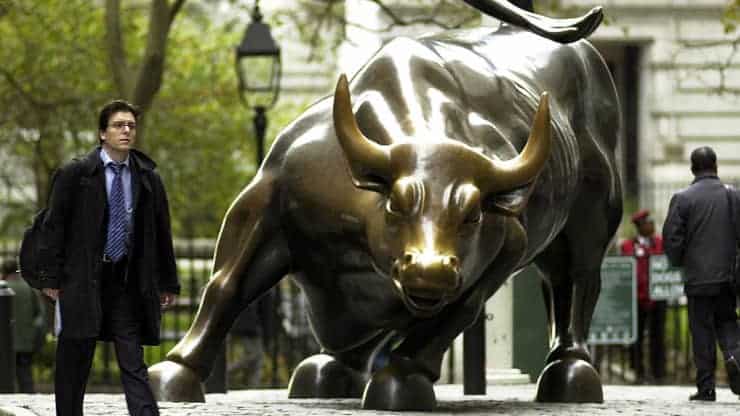
Futures contracts tied to the major U.S. stock indexes rose Sunday evening after the S&P 500 notched its best week since February, as well as a new record, on Friday.
Futures tied to the S&P 500 rose 0.15% and those linked to the Dow Jones Industrial Average advanced 50 points. Nasdaq 100 futures gained 0.15%.
Stocks posted their best week in months on Friday as investors grew more relaxed about inflation, seeing the current price acceleration in the U.S. not as a sustained economic threat, but as a temporary uptick.
The S&P 500 ended Friday at a closing record high of 4,280.70, while the Dow rose 237.02 points and sits less than 2% from its record. While the Nasdaq Composite closed just lower on Friday, it added 2.35% for the week, its best since April 9 and is up 4.45% for the month of June.
The weekly gains came even after the Commerce Department reported that its inflation indicator rose 3.4% in May, the fastest increase since the early 1990s.
Spikes in the core personal consumption expenditures price index can cause heartburn for investors since the Federal Reserve likes to watch it for signs of inflation. Still, the rise actually undershot what economists polled by Dow Jones had forecast and reinforced for investors that the economy-wide price increases are likely to be transient and manageable.
The next major piece of economic data is the June jobs report, which the Labor Department is scheduled to publish on Friday.
Economists are expecting that nonfarm payrolls increased by 683,000 in June. While such a robust reading would top the 559,000 in May, it would still be below the 1 million some had hoped a recovering U.S. economy could post as it emerged from the Covid-19 crisis.
Investors will also pore over the June report for any signs of wage inflation as employers struggle to find workers to fill job openings and pandemic-era jobless benefits taper off in some states.
A massive, bipartisan infrastructure deal appeared revitalized as of Sunday evening after President Joe Biden clarified on Saturday that he doesn’t plan to veto the legislation if it comes without a separate reconciliation bill favored by Democrats.
The president, flanked by a bipartisan group of senators, declared on Thursday that the group had reached a multibillion-dollar deal to improve the nation’s roads, bridges, waterways and broadband after weeks of negotiation. Democrats have been pushing for a second bill that would include funding for issues like climate change, child care, health care and education.